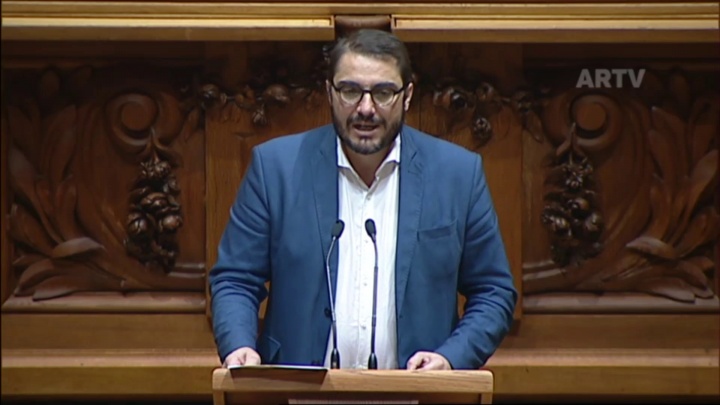The use of a State of Emergency does not seem proportionate or adequate to the measures that the country needs to face the difficult situation it is going through.
The declaration of the State of Emergency proposed by the President of the Republic that today is discussed and voted on must be rejected for four essential reasons.
First of all, because it completely disregards the first and main question the country faces, namely defining the health security conditions that must be created in each area and sector so that national life can proceed with the normality possible in the prevailing circumstances.
Second, because it accentuates the unaccountability of public authorities in favour of easy solutions of individual accountability and the limitation of rights, freedoms and guarantees in a context where political options are failing.
Thirdly, because it rides the wave of fear and panic promoted on a mass scale, contributing to greater limitations to the exercise of individual or collective rights that have occurred in recent months, supported by the wrong idea that therein rests the solution to the problems we face.
Fourth, because, in matters as relevant as access to health care, this State of Emergency declaration does not constitute the framework required by the Constitution for the defence of constitutional rights in a situation of state of exception, but rather a roadmap for doing private business with public money with the pretext of the epidemic.
Proof of each of these four elements lies in the evolution of the national situation. Starting with health.
The proposed State of Emergency declaration does not indicate a single real push for strengthening the National Health Service (NHS), but shamelessly offers an apology for the business of disease. Even the legal possibility – which already existed and will continue to exist – of requisition of private means by the State is skillfully converted into a call for contracts that cement this business to thicken the profits of the private economic groups operating in this area.
What we should be discussing is strengthening the NHS and its responsiveness. Not only in terms of interrupting the chains of contagion, but also the hospitalization of serious patients. Not only in response to Covid patients, but also to other patients with other pathologies that are not being diagnosed or treated in time. Not only in the investment in hospitals, health centres, equipment and other means, but also in hiring of health professionals.
Instead, we are discussing yet another State of Emergency authorization that can provide cover for restrictions on the exercise of rights.
In recent months, several areas, sectors and events, public or private, made efforts to organize and adapt so that everything could take place with health security conditions.
We should be discussing precisely the extension of these examples.
The political leaders, including the President of the Republic, should be asking, for each area and sector, what health security conditions must be created for national life to continue? What steps must be taken in a school, a nursing home, public transportation, a theatre or cinema, a restaurant or a coffeeshop, a stadium or a sports arena so that all this economic, social, cultural and sport activity can continue? What measures must be taken to adapt spaces to properly receive students, spectators or customers? What measures increasing the number of buses and trains need to be taken to reduce the number of passengers without leaving anyone without transportation? And also, what investment needs to be made in public services and what support do small businesses, communities, small farmers, producers and fairground salesmen need to develop their activity in these new conditions?
Instead, the President of the Republic, at the request of the Government, asks the National Parliament if it can declare a State of Emergency…
It may be easier and more convenient to skip the discussion about the health conditions necessary for national life to proceed. One can pretend that there are no bans on elections in schools and universities, pretend that there are no students suspended for sharing a snack with colleagues, shrug when one hears a report of workers forced to work longer hours for less pay. One can even consider it less damaging to discuss health security by passing on responsibility onto individuals, with the policy of Forbid, Limit and Suspend.
The truth, dear Members of Parliament, and especially members of the Government, is that after each dose of Forbid, Limit and Suspend this question will always arise: and now, what is it going to be like, how can it be done?
This is the discussion that needs to be asked, together with deciding the necessary health protection measures, and it is for all these reasons that the authorization to declare a State of Emergency must be rejected.
